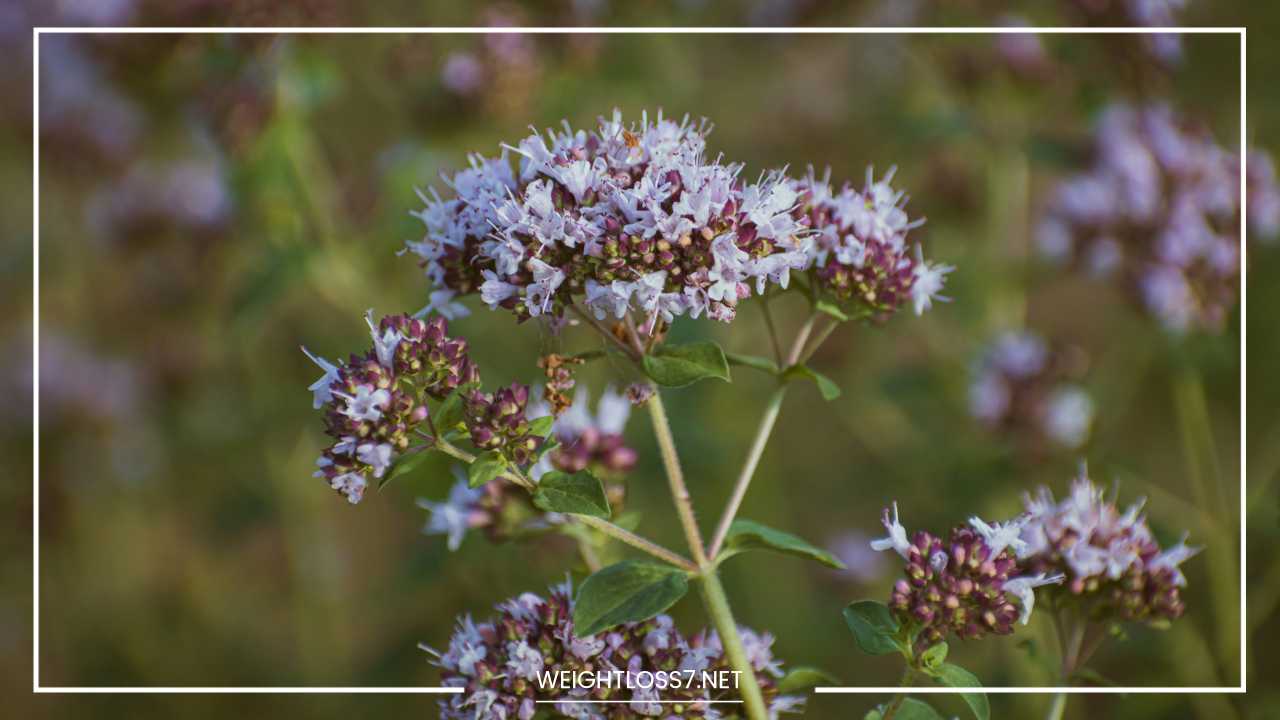Marjoram Uses and Health Benefits

Marjoram
Marjoram: A Comprehensive Guide to Its Culinary and Health Benefits
Marjoram, with its delicate aroma and subtle sweetness, is a herb that has graced kitchens and medicine cabinets for centuries.
Native to the Mediterranean region, it is closely related to oregano, but its softer, sweeter flavor and potential health benefits set it apart.
This guide will explore marjoram’s rich history, culinary versatility, health benefits, and practical uses to help you fully appreciate this remarkable herb.
Historical Background of Marjoram
Marjoram (Origanum majorana) has a storied history that dates back to ancient civilizations. The herb was highly prized by the Greeks and Romans, who used it not only as a culinary ingredient but also for its medicinal properties.
In Greek mythology, marjoram was associated with love and happiness, and it was often used in wedding ceremonies as a symbol of joy and prosperity.
The Romans were particularly fond of marjoram, incorporating it into their cuisine and medicine. They believed the herb had restorative properties and used it to treat a variety of ailments.
In medieval Europe, marjoram continued to be valued for its culinary and medicinal applications. Herbalists and apothecaries of the time recognized its benefits and used it in various remedies.
Today, marjoram is still cherished in Mediterranean cuisine and has found its place in kitchens worldwide. Its historical significance and continued use underscore its importance as both a culinary and medicinal herb.
Culinary Uses of Marjoram
Marjoram’s mild, sweet flavor makes it a versatile ingredient in a wide range of dishes. Whether you are preparing a simple meal or an elaborate feast, marjoram can enhance the taste and aroma of your dishes. Here’s a detailed look at how marjoram can be used in different culinary contexts:
1. Poultry and Meat Dishes
Marjoram is an excellent complement to poultry and meats, adding a subtle sweetness and depth of flavor. Its mild taste does not overpower other ingredients, making it ideal for a variety of meat dishes:
- Chicken: Marjoram pairs beautifully with chicken, whether used in a marinade, as a seasoning for roasted or grilled chicken, or added to chicken stews and casseroles. The herb’s subtle sweetness enhances the flavor of the meat without overwhelming it.
- Lamb: In Mediterranean cuisine, marjoram is a classic ingredient in lamb dishes. It is often used in marinades and rubs for lamb chops, kebabs, and roasts. The herb complements the rich flavor of lamb, balancing its robustness with a delicate sweetness.
- Pork: Marjoram adds a unique flavor to pork dishes, from simple pork chops to more elaborate preparations like pork roasts and braised pork. It pairs well with other herbs and spices, creating a harmonious blend of flavors.
2. Vegetables
Marjoram is a wonderful herb for seasoning vegetables, enhancing their natural flavors:
- Roasted Vegetables: Sprinkle marjoram over roasted vegetables such as tomatoes, zucchini, and eggplant. The herb adds a subtle, aromatic touch that elevates the dish.
- Sautéed Vegetables: When sautéing vegetables like bell peppers, onions, and mushrooms, add marjoram towards the end of cooking to preserve its delicate flavor. The herb pairs well with other fresh herbs and spices.
- Vegetable Soups: Marjoram can be added to vegetable soups and stews to provide a comforting depth of flavor. It works particularly well in hearty soups featuring root vegetables, beans, or lentils.
3. Soups and Stews
Marjoram’s ability to infuse warmth and complexity makes it an excellent choice for soups and stews:
- Bean Soups: Add marjoram to bean-based soups for an extra layer of flavor. The herb complements the earthy taste of beans and adds a hint of sweetness.
- Hearty Stews: For stews featuring meat, potatoes, and root vegetables, marjoram can enhance the overall flavor profile. It blends well with other herbs like thyme and rosemary.
- Chicken Soup: Marjoram is a classic addition to chicken soup, imparting a gentle, aromatic quality that complements the savory broth.
4. Sauces and Dressings
Marjoram’s versatility extends to sauces and dressings, where it can add a unique flavor twist:
- Marinara Sauce: Incorporate marjoram into marinara sauce for a subtle herbaceous note. It pairs well with tomatoes and other Italian seasonings.
- Pesto: Marjoram can be used in place of or alongside basil in pesto recipes, creating a unique variation of this classic sauce.
- Salad Dressings: Add marjoram to vinaigrettes and salad dressings for a fresh, herbal flavor. It pairs well with both simple and complex dressings.
5. Herbal Tea
Marjoram leaves can be brewed into a soothing herbal tea. This tea is often enjoyed for its calming properties and can be a comforting beverage before bedtime:
- Basic Marjoram Tea: Steep fresh or dried marjoram leaves in hot water for a few minutes. Strain and enjoy the tea plain or with a touch of honey.
- Blended Teas: Combine marjoram with other herbs like chamomile or peppermint to create a custom herbal blend with enhanced flavor and health benefits.
Health Benefits of Marjoram
Marjoram is not only valued for its culinary uses but also for its potential health benefits. While scientific research is ongoing, the herb has a long history of traditional use for various health conditions. Here’s a closer look at the potential benefits of marjoram:
1. Digestive Health
Marjoram has been traditionally used to support digestive health. Its carminative properties may help alleviate common digestive issues:
- Bloating and Gas: Marjoram is believed to reduce bloating and gas by promoting healthy digestion and easing the discomfort associated with these conditions.
- Indigestion: Drinking marjoram tea or using the herb in cooking may help soothe indigestion and improve overall digestive function.
- Appetite Stimulation: Marjoram may stimulate appetite, which can be beneficial for individuals with reduced appetite or those recovering from illness.
2. Anti-inflammatory Properties
Marjoram contains compounds with anti-inflammatory effects, which may help reduce inflammation in the body:
- Arthritis: The anti-inflammatory properties of marjoram may provide relief for individuals with arthritis, potentially reducing joint pain and swelling.
- Inflammatory Bowel Disease: Marjoram’s anti-inflammatory effects may also benefit individuals with inflammatory bowel disease (IBD) by helping to reduce inflammation in the digestive tract.
3. Antioxidant Benefits
Rich in antioxidants, marjoram helps protect cells from oxidative damage caused by free radicals:
- Cell Protection: Antioxidants in marjoram may help neutralize free radicals, reducing cellular damage and contributing to overall health.
- Chronic Disease Prevention: By protecting cells from oxidative stress, marjoram may help lower the risk of chronic diseases such as cardiovascular disease and certain cancers.
4. Respiratory Health
Marjoram has been traditionally used to support respiratory health, particularly for relieving symptoms of respiratory conditions:
- Coughs and Colds: The herb may help soothe coughs and colds by reducing inflammation in the respiratory tract and promoting respiratory comfort.
- Congestion Relief: Marjoram’s soothing properties can aid in clearing congestion and easing symptoms associated with respiratory infections.
5. Stress Relief
The calming aroma of marjoram has been linked to reduced stress and anxiety:
- Relaxation: Marjoram essential oil is often used in aromatherapy to promote relaxation and alleviate feelings of stress. Its soothing scent can create a calming atmosphere.
- Sleep Quality: Marjoram may improve sleep quality by reducing anxiety and promoting a sense of calm before bedtime.
6. Menstrual Health
Marjoram has been used to support menstrual health and alleviate symptoms associated with the menstrual cycle:
- Menstrual Regulation: The herb may help regulate menstrual cycles and address irregularities.
- PMS Relief: Marjoram may provide relief from PMS symptoms such as mood swings, cramps, and bloating.
7. Skin Health
Topical applications of marjoram oil may benefit skin health by addressing various skin conditions:
- Irritated Skin: Marjoram oil can be applied to soothe irritated skin and promote healing.
- Minor Cuts and Bruises: The herb’s antimicrobial and anti-inflammatory properties may aid in the healing of minor cuts and bruises.
How to Use Marjoram
Marjoram can be used in various forms, including fresh, dried, and as essential oil. Here’s how to incorporate this herb into your routine:
1. Fresh Marjoram
- Preparation: Remove the leaves from the stems and chop them finely before adding to dishes. Fresh marjoram has a more delicate flavor compared to dried.
- Storage: Store fresh marjoram in the refrigerator in a sealed container or wrapped in a damp paper towel to maintain its freshness.
2. Dried Marjoram
- Usage: Dried marjoram is typically ground and can be added to dishes during cooking. It’s best to add it early in the cooking process to allow its flavor to fully develop.
- Storage: Keep dried marjoram in an airtight container in a cool, dark place to preserve its potency.
3. Marjoram Essential Oil
- Aromatherapy: Use marjoram essential oil in a diffuser to create a calming atmosphere. It can also be added to baths for a relaxing experience.
- Topical Application: Dilute marjoram essential oil with a carrier oil (such as coconut or jojoba oil) before applying it to the skin. It’s important to perform a patch test to ensure there is no allergic reaction.
- Culinary Use: Marjoram essential oil should not be used for culinary purposes, as it is highly concentrated and may cause irritation.
Safety and Precautions
While marjoram is generally safe when used in culinary amounts, there are a few precautions to keep in mind:
1. Pregnancy and Breastfeeding
- Consultation: Pregnant and breastfeeding women should consult with a healthcare professional before using marjoram in medicinal amounts, as its effects during these periods have not been thoroughly studied.
2. Allergies
- Allergic Reactions: Individuals with allergies to mint or other herbs in the Lamiaceae family may also be allergic to marjoram. It’s important to monitor for any allergic reactions when using the herb.
3. Drug Interactions
- Medications: Marjoram may interact with certain medications, particularly those used to treat Alzheimer’s disease and other conditions. Consult with a healthcare provider if you are on medication or have health concerns.
Final Thoughts
Marjoram is a versatile herb with a rich history and a wide range of culinary and health benefits. Its delicate flavor enhances a variety of dishes, while its potential medicinal properties make it a valuable addition to your wellness routine.
From soothing teas to aromatic essential oils, marjoram offers numerous ways to incorporate its benefits into your life.
Whether you are exploring its culinary uses or considering its health advantages, marjoram is a herb worth embracing for its unique qualities and historical significance.

















